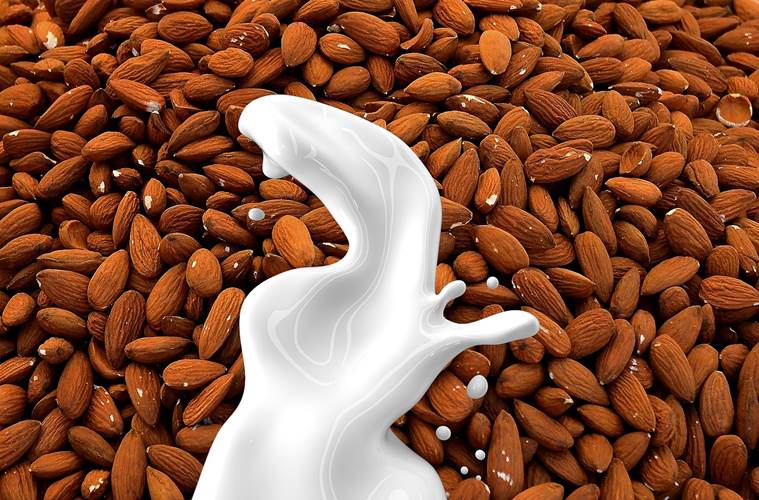📣 For more lifestyle news, click here to join our WhatsApp Channel and also follow us on Instagram
Myth or fact: Plant-based yoghurts are nutritionally more dense than dairy ones
"Almond yoghurts scored significantly higher than all other yogurts, indicating the highest nutrient density," the study mentioned.
 Are plant-based yogurts better? (Source: Getty Images/Thinkstock)
Are plant-based yogurts better? (Source: Getty Images/Thinkstock)Compared to dairy yoghurts, plant-based yoghurts contained significantly less total sugar, less sodium, and more fiber, a new study has indicated. Published in Frontiers in Nutrition journal, it further suggested that plant-based yoghurts also contained significantly less protein, calcium, and potassium than their dairy counterparts.
The University of Massachusetts study, which ranked yoghurts from the highest to lowest nutrient density based on the NRF (Nutrient Rich Food) Index, compared almond, oat, low and nonfat dairy, full-fat dairy, cashew, and coconut yoghurt. “Almond yoghurts scored significantly higher than all other yogurts, indicating the highest nutrient density,” the study mentioned.
Considering that plant-based yoghurts are sustainable alternatives to dairy yoghurts, such a nutritional comparison of plant-based yoghurts within the context of dairy yoghurts has not been previously applied to commercially available products in the United States, the study further read.
With the objective of the study to analyse the macronutrient and micronutrient values of commercially available plant-based and dairy yoghurts launched between 2016 and 2021, the study found that dairy yoghurts provide significant dietary nutrients, and substituting plant-based yoghurts may have unintended nutritional consequences.
 Plant-based milk like coconut, almond, soy, to name a few, are rich in vitamins and minerals (Source: Pixabay)
Plant-based milk like coconut, almond, soy, to name a few, are rich in vitamins and minerals (Source: Pixabay)
Consequently, after almond, oat yogurts were found to contain low levels of total sugar, sodium, and saturated fat. “By applying the NRF model to plant-based and dairy yogurts, we have identified opportunities for the food industry to improve the formulation and nutritional composition of plant-based yoghurts. In particular, fortification is an opportunity to improve plant-based yoghurt nutritional properties,” the study read.
Khushboo Sahijwani Matta, dietician, Rejua Energy Center, Mumbai said that there is indeed a significant difference between dairy-based and non-dairy-based yoghurt, where the quantity of protein is much higher in dairy-based yoghurt when compared.
“The probiotic benefits that dairy-based yoghurt provides is extremely important for the balance of our gut. Such yoghurt contains live and active cultures that help in digestion. Plant-based yoghurts are good for people with lactose intolerance,” said Matta.
Adding, Yogita Chavan, dietitian, Godrej Memorial Hospital, Mumbai mentioned that if a consumer is looking for a nutritionally-dense yogurt (plant-based), then almond yogurt can be an option, provided it is fortified with necessary nutrients.
“Calcium and B12 levels in plant-based yoghurts are lower than in dairy yoghurts. However, if the same is fortified with almond-based yoghurts, it can be a complete food,” Chavan said adding that fortification refers to addition of trace amounts of micronutrients to staple or commonly consumed foods or condiments during processing, which helps increase intake towards recommended micronutrient levels.
📣 For more lifestyle news, follow us on Instagram | Twitter | Facebook and don’t miss out on the latest updates!
📣 For more lifestyle news, click here to join our WhatsApp Channel and also follow us on Instagram



- 01
- 02
- 03
- 04
- 05
























